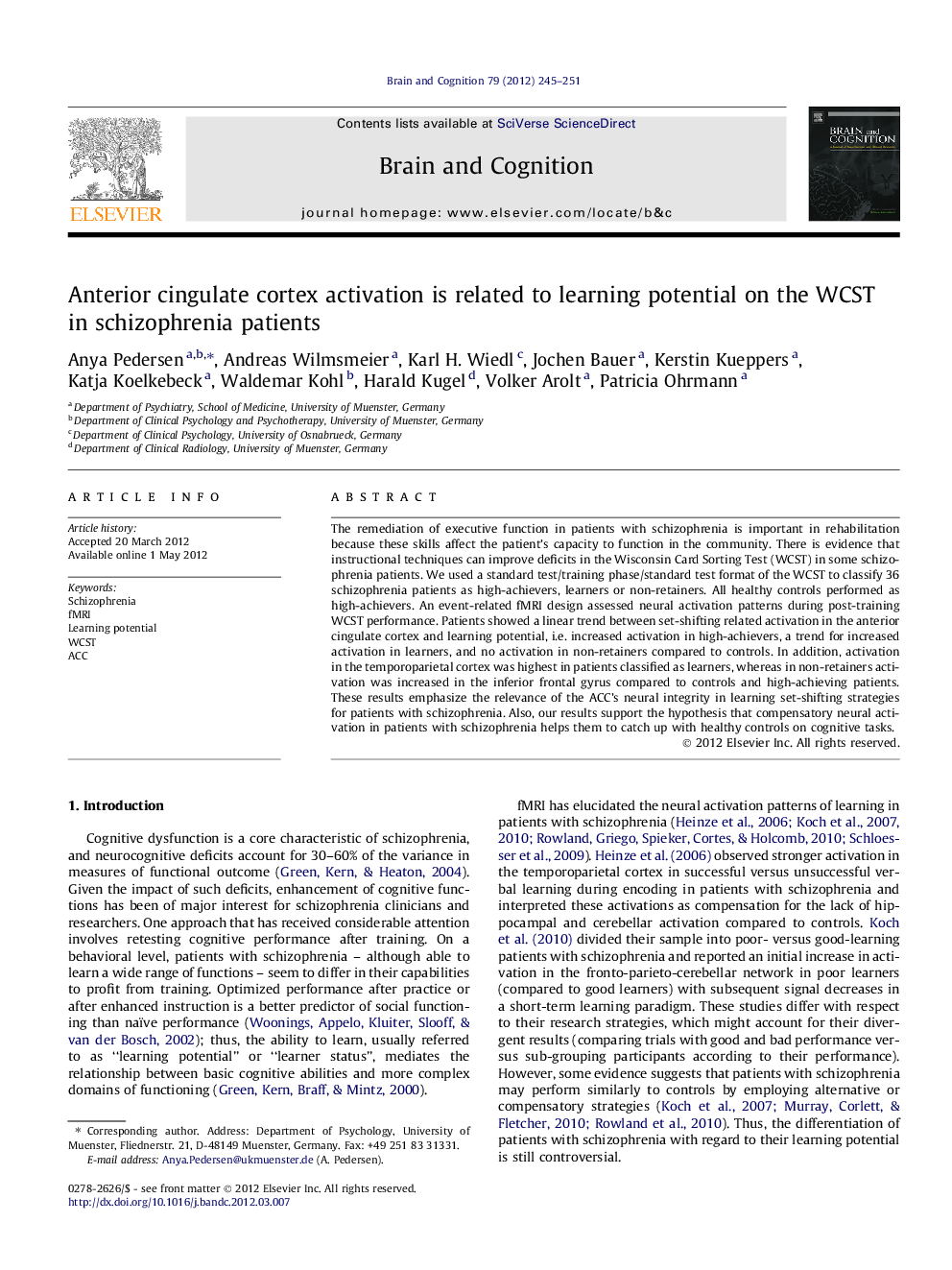| Article ID | Journal | Published Year | Pages | File Type |
|---|---|---|---|---|
| 924417 | Brain and Cognition | 2012 | 7 Pages |
The remediation of executive function in patients with schizophrenia is important in rehabilitation because these skills affect the patient’s capacity to function in the community. There is evidence that instructional techniques can improve deficits in the Wisconsin Card Sorting Test (WCST) in some schizophrenia patients. We used a standard test/training phase/standard test format of the WCST to classify 36 schizophrenia patients as high-achievers, learners or non-retainers. All healthy controls performed as high-achievers. An event-related fMRI design assessed neural activation patterns during post-training WCST performance. Patients showed a linear trend between set-shifting related activation in the anterior cingulate cortex and learning potential, i.e. increased activation in high-achievers, a trend for increased activation in learners, and no activation in non-retainers compared to controls. In addition, activation in the temporoparietal cortex was highest in patients classified as learners, whereas in non-retainers activation was increased in the inferior frontal gyrus compared to controls and high-achieving patients. These results emphasize the relevance of the ACC’s neural integrity in learning set-shifting strategies for patients with schizophrenia. Also, our results support the hypothesis that compensatory neural activation in patients with schizophrenia helps them to catch up with healthy controls on cognitive tasks.
► Patients with schizophrenia use different strategies to achieve WCST performance. ► The ACC is relevant to learn set-shifting strategies in patients with schizophrenia. ► WCST learning potential measures cognitive resources in schizophrenia.
